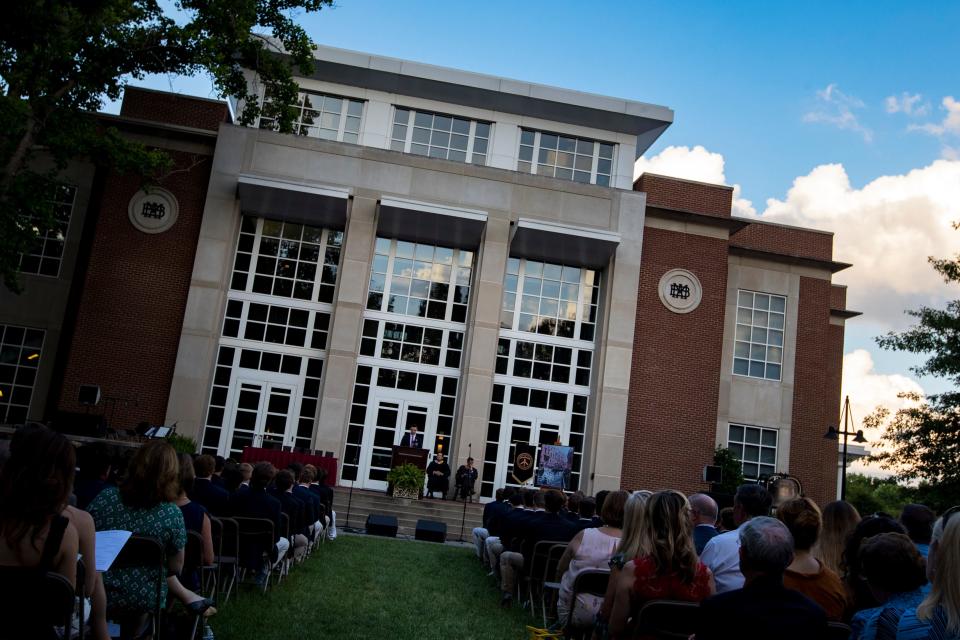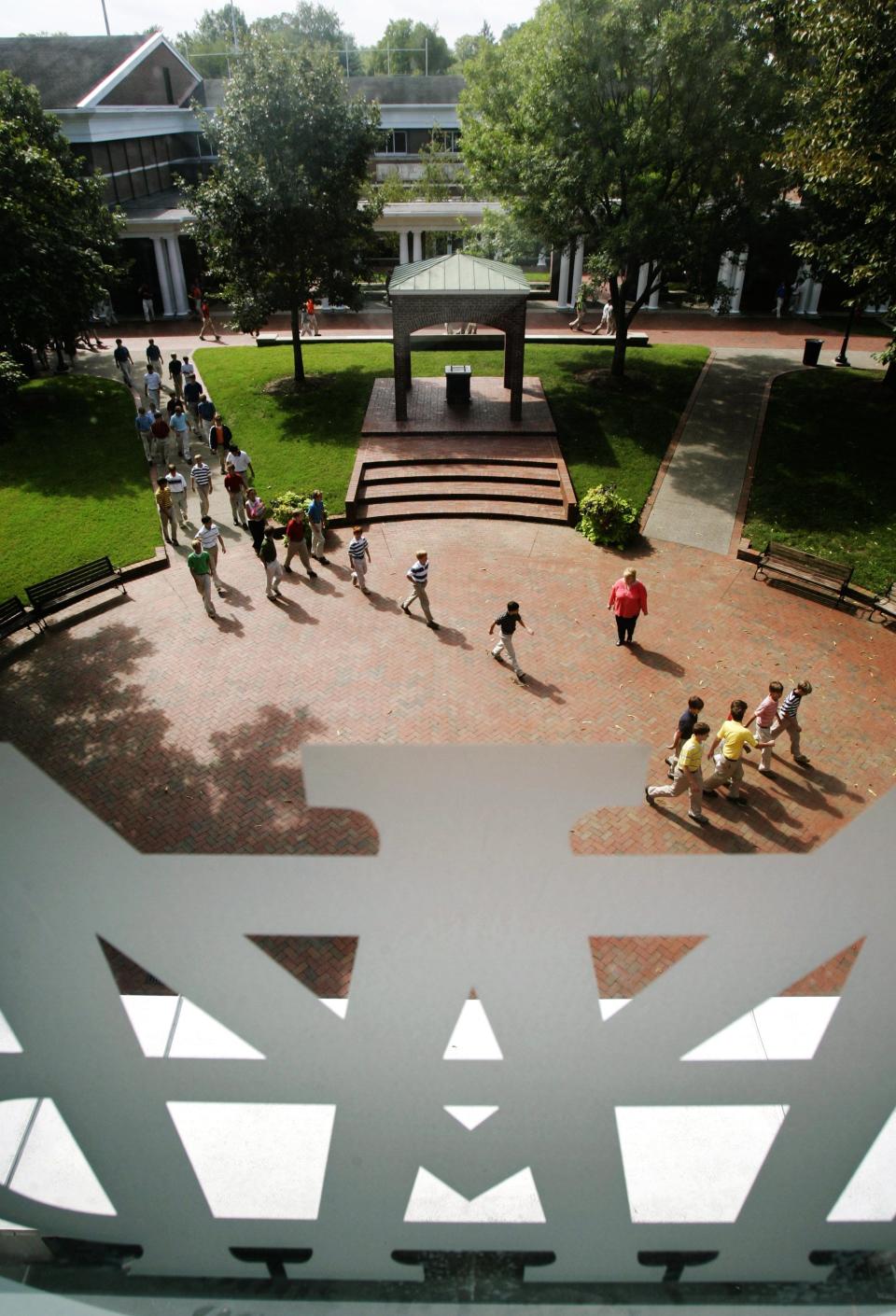Metro board defers low-interest bond deal for private school to seek higher fees

Metro board members tasked with incentivizing private development via discounted loans deferred a nonprofit all-boys school's relatively routine tax-exempt bond issuance request after a heated debate.
Industrial Development Board Vice Chair Quin Segall argued for more evidence of Montgomery Bell Academy's entitlement to the low-interest loan, during the board's meeting Wednesday morning.
"Economic development is our literal, defined purpose," Segall told Academy officials. "By giving you cash back, we're not creating new jobs. We're not creating new opportunities for Davidson County. So I have some concerns about that."
The school finished construction last year on a $50 million athletic and wellness center with an expanded football field, squash courts and a lacrosse field.
Now, Montgomery Bell is seeking approval for Pinnacle Bank to buy untaxed educational-facilities revenue bonds that allow the lender to charge a significantly lower interest rate on the construction loan.

Background: Metro to consider a $50 million bond for an all-boys private middle, high school
No Metro tax funds will be spent on the school's expansion, which will be repaid with its own revenues.
Board members said they will vote on the matter next month after exploring new fee structures for such deals.
"I fully appreciate your points," MBA Athletic Director Mark Tipps said, in response to Segall. "You may be raising things that are perfectly valid. But they seem to be perhaps things that ought to be discussed with the state legislature or whoever authorizes this policy. We're not here trying to take advantage."
Tipps said the school often hosts students from public schools around the county to participate in football clinics, basketball camps and other activities.
"We always look for ways to help the community," Tipps said. "I would respectfully suggest that people who say this is only for Montgomery Bell Academy students don't spend any time on our campus."
The school, which charges about $31,000 a year for tuition, is entitled to the bond because it is a nonprofit organization and, as such, the issuance is sanctioned by state and federal law.
More typically, Metro's Health and Educational Facilities Board handles nonprofit development bond deals.

For example, in September, that board approved $142 million in bonds for Belmont University. In October 2020, the board approved $80 million in bods for Trevecca Nazarene University, according to board minutes.
In May 2020, the board approved $2.72 million in bonds for Purpose Preparatory Academy, a Nashville charter school. And in January 2020, the educational board approved $16 million in bonds for Christ Presbyterian Academy and a combined $26.5 million for Franklin Road Academy, according to board minutes.
Still, it's well within the IDB's stated role to incentivize "manufacturing, industrial, and commercial enterprises," officials said.
The board has approved two prior bonds for Montgomery Bell. It also oversaw bonds for Donelson Christian Academy, Goodwill Industries, Nashville Symphony, YMCA, Country Music Foundation and Saint Paul's Christian Academy, among others, officials said.
Board members repeatedly asked Montgomery Bell officials why they chose to come to them rather than the Health and Educational Facilities Board.
School officials said they were not aware of any strong preference and were simply doing what it's done with prior IDB-sanctioned bonds.
Segall asked whether school officials would agree to pay higher fees if the board changes its fee schedule.
"This board tries really hard to follow the council and mayor's office desires with respect to the 'Do-Better' bill and getting information out there," Segall said. "We routinely have companies give us information they're not required to so we can have as much info as possible."

Attorneys contended that the board could not change application fees already agreed upon. Montgomery Bell applied for and received IDB approval in 2019 for this financing structure, which allows them to refinance their loan up to 18 months after construction.
MBA paid a $750 application fee for the IDB to process its application, and is responsible for all fees incurred. But the fees are well below those charged in Tennessee's other metropolitan areas.
"We're not charging enough to even cover our costs," Segall said. "One of the ways we can make this more equitable is to use fees for deals like this to help support those efforts."
IDB's relationship to Metro officials has been questioned in the past over favorable deals negotiated by private developers, said Segall.
Tennessee education news: Parents, teachers push back against 'Maus' removal from McMinn County curriculum
She proposed a comprehensive review of all fees relative to administration costs and community development.
Courtney Pogue, Metro's economic development director, said other Tennessee cities charge much higher application and administration fees.
"We've got to revamp our policies and fees," Pogue said. "This is no penalty on MBA. They're following the current procedure. Our peer cities all charge fees well above what we're charging now. The application right now still says Mayor Karl Dean. It needs to be revamped."
– Duane Gang contributed to this report.
Sandy Mazza can be reached via email at smazza@tennessean.com, by calling 615-726-5962, or on Twitter @SandyMazza.
This article originally appeared on Nashville Tennessean: Metro board defers bond deal for private school to seek higher fees
